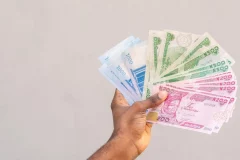The global watchdog for money laundering and terrorist financing, the Financial Action Task Force (FATF), has placed Nigeria on its grey list. The FATF has 40 recommendations that provide guidelines for a country’s financial system to prevent money laundering and the financing of terrorist organisations. The watchdog currently has two lists that point out countries with weak laws to prevent money laundering and terrorist financing; they are called the black list and grey list.
Countries placed on the grey list are subjected to increased monitoring and are actively working with the FATF to counter the shortcomings of their laws. They include countries like Turkey, the United Arab Emirates, South Sudan, and Haiti. As 73% of countries have been removed since the list’s inception, it is not a permanent list, and nations have the chance to be taken off it after cooperating with the FATF to address their failings.
The implications of the list could, however, have severe consequences. South Africa’s rand fell against the dollar after the country was placed on the list last Friday. The FATF has more than 200 member countries, and being placed on the grey list warns countries that doing business with a greylisted country might help facilitate terrorism and money laundering.
The economy of a greylisted nation might also suffer as international organisations would have to audit companies and take extra steps before investing in the country. This could be especially significant for Nigeria, as the country’s foreign direct investment (FDI) has been fluctuating for the past few years. In June 2022, the country’s FDI reached a record low.
Adedeji Olowe, the CEO and founder of Lendsqr, had a different opinion. He told TechCabal on a call that although being placed on the grey list was “a wake-up call”, and the country was not doing enough to prevent money laundering, the grey list was not too damning. He added that countries like Turkey (a NATO and G-20 member) and the United Arab Emirates were also on the list and that it did not have far-reaching effects on their economies. “All we have to do is collaborate with the FATF to bolster our laws, and we would be fine,” he said.
Oladayo Adenubi, a financial analyst, also echoed Olowe’s opinion. “I honestly don’t think this is really consequential. Many factors go into valuing the cost of capital in international capital markets. The FATF listing does not hold as much weight compared to other factors like currency risk, inflation, and creditworthiness. It’s more of a qualitative metric than a quantitative one,” he told TechCabal.
Shuyi Timilehin, a lawyer, also shared the same thoughts. “ The grey list is just a way for the FATF to disclose that there are deficiencies with Nigeria’s laws and that it is working with Nigeria to correct them. Making progress depends on how well we can cooperate with the FATF to remove ourselves from the grey list. Where we would need to worry is where Nigeria doesn’t work with the FATF”.





















